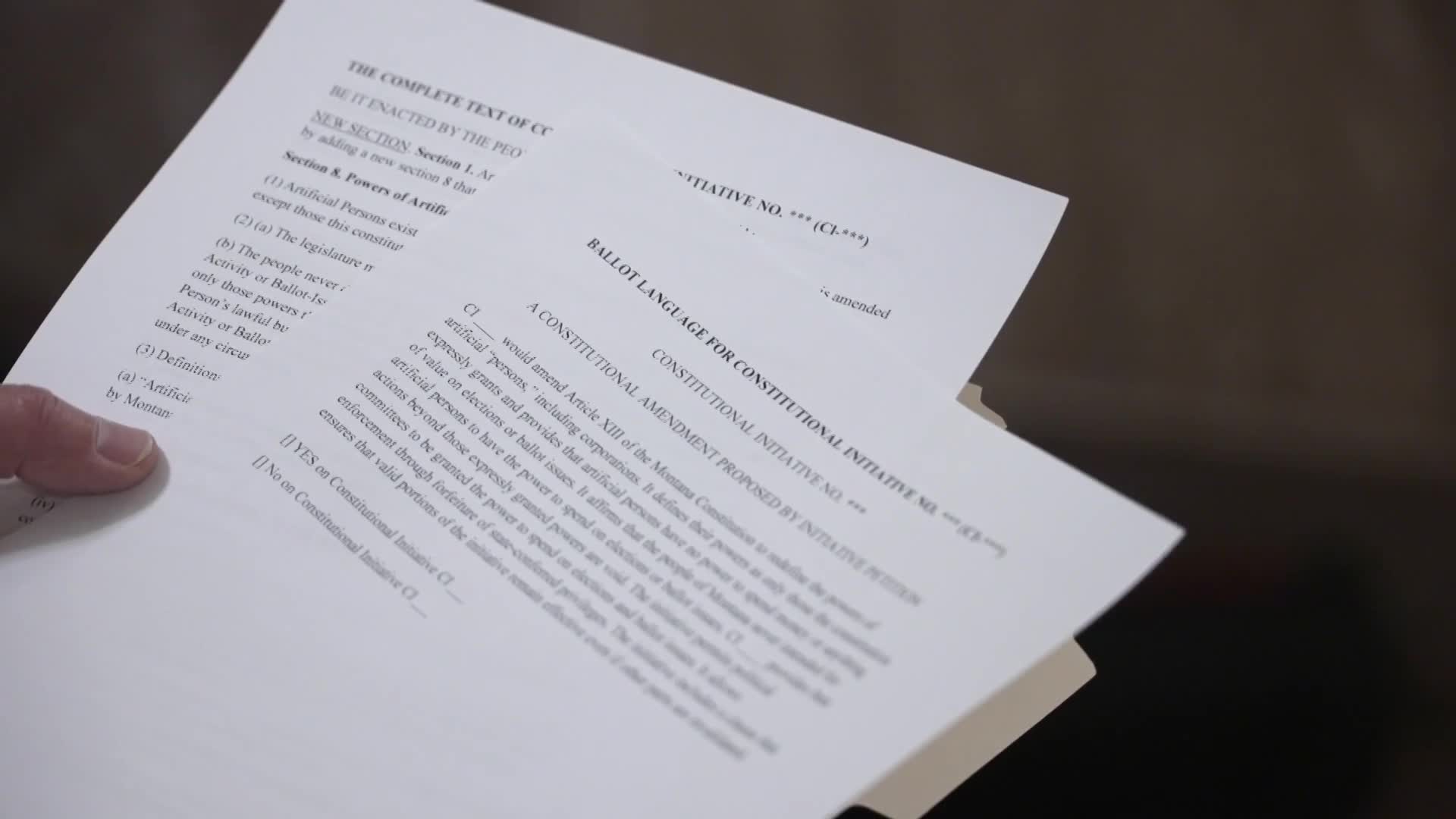HELENA — Advocates have officially submitted a proposed ballot initiative that seeks to go around the Citizens United decision and block corporations from spending money in Montana elections.
This week, the Transparent Election Initiative unveiled the language of their planned constitutional initiative. It seeks to amend the Montana Constitution to redefine the powers of “artificial persons,” including corporations, so they don’t include political spending.
(Watch the video for a closer look at what's in the proposed initiative.)
Former Montana Commissioner of Political Practices Jeff Mangan, the founder of the Transparent Election Initiative, submitted the proposal to the Montana Secretary of State’s Office Friday afternoon.
“I've heard it day in and day out since I left the commissioner's office: What can we do about money in politics, how come I get so many mailers, etc., etc., we need to do something,” he said. “People are excited that somebody is actually doing something.”
Mangan first announced plans for the initiative in June.
The U.S. Supreme Court’s 2010 Citizens United decision said political speech is protected under the First Amendment, even when that speech comes from a corporation. The effect was to allow corporations to make unlimited political expenditures as long as they are officially independent of a campaign. In 2012, the court ruled 5-4 that the precedent from that case meant Montana’s 100-year-old law prohibiting corporate spending on elections was invalid.
Supporters of this initiative have argued it presents a novel legal approach that could circumvent those rulings. Their key claim is that states have the authority to limit what powers they grant corporations, so Montana could redefine those granted powers to exclude political spending.
“This section retracts all Artificial Persons' powers and re-grants only those powers that the people deem necessary or convenient to carry out an Artificial Person's lawful business or charitable purposes, as described in (3)(e),” the proposed language reads. “Powers related to Election Activity or Ballot-Issue Activity shall not be deemed necessary or convenient to those purposes.”
Mangan said his group had been working on the final language for weeks.
“We certainly wanted to ensure that that it was viable, that it passed all muster, that it was defendable, and that everyone could read it and understand it – and I think we're there,” he said.
The draft language must now be reviewed by legislative staff, and then the Montana Attorney General’s Office will determine whether the proposal is legally sufficient. If the attorney general signs off, supporters will be able to start gathering signatures to qualify the measure for the November 2026 ballot. However, two of the initiatives that appeared on the ballot in 2024 were originally ruled legally insufficient by Attorney General Austin Knudsen, and their backers had to go to court to continue through the process.
MTN asked Mangan if he expected this proposal to face legal hurdles.
“I'm confident with our legal staff, I'm confident with the folks that are working on this initiative, and I believe we’ve dotted every I, crossed every T and are, like I said, ready to defend it if necessary,” he said. “But it's certainly complete, it’s certainly thorough, and certainly transparent. We've let everybody see it, it's online, nothing hidden.”
It takes at least 60,241 signatures from registered voters to get a constitutional initiative on the ballot – 10% of the votes cast in last year’s election for governor. Mangan said he expects to be able to begin collecting signatures by late winter or early spring. Signatures will be due in June 2026.
This was the second proposed constitutional initiative submitted to the Secretary of State’s Office this week, following a measure that would require Montana judicial elections to remain nonpartisan.
Another proposed constitutional initiative – CI-130, which would limit how fast assessed property values can increase – has already been cleared to start collecting signatures.



